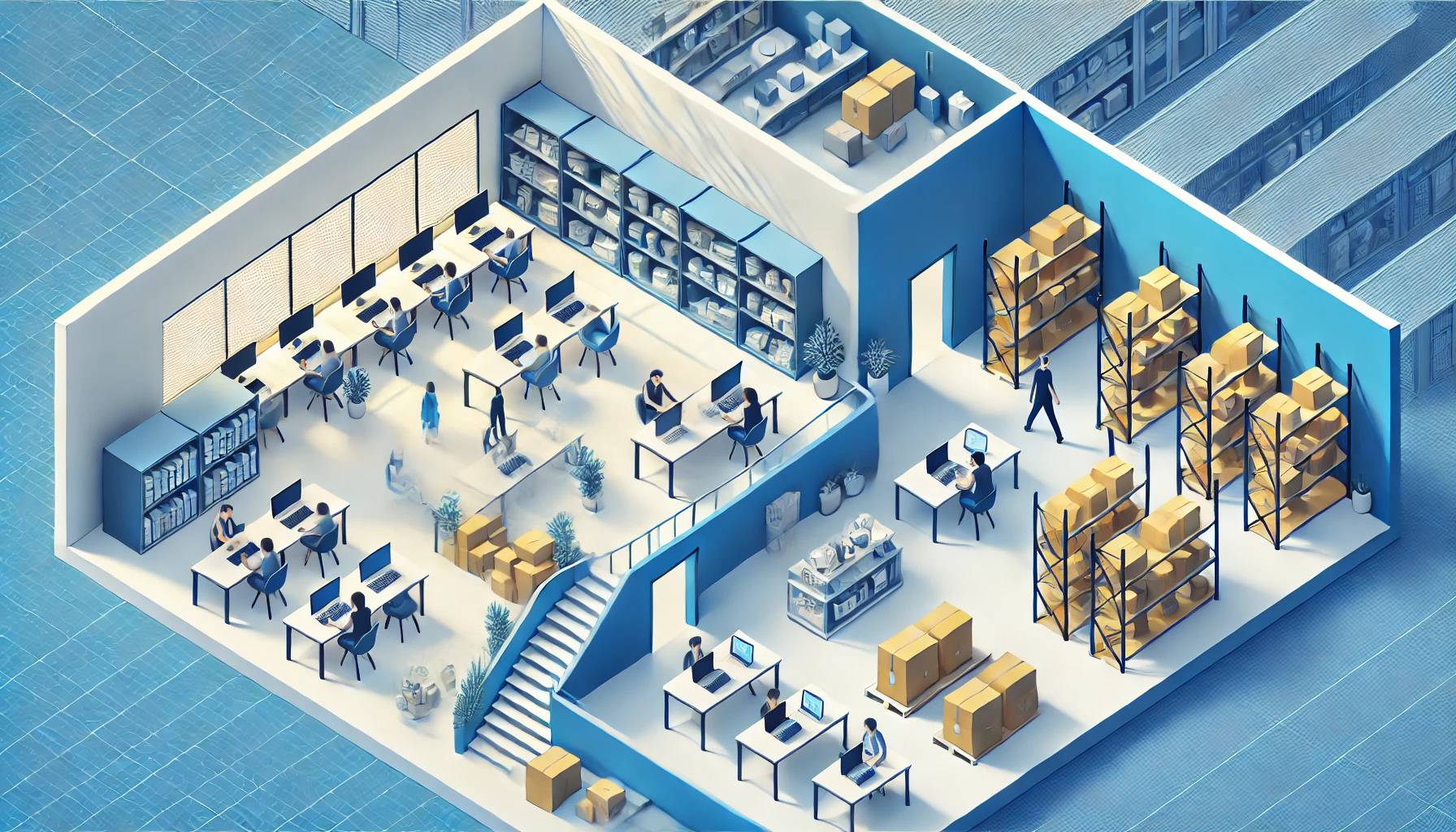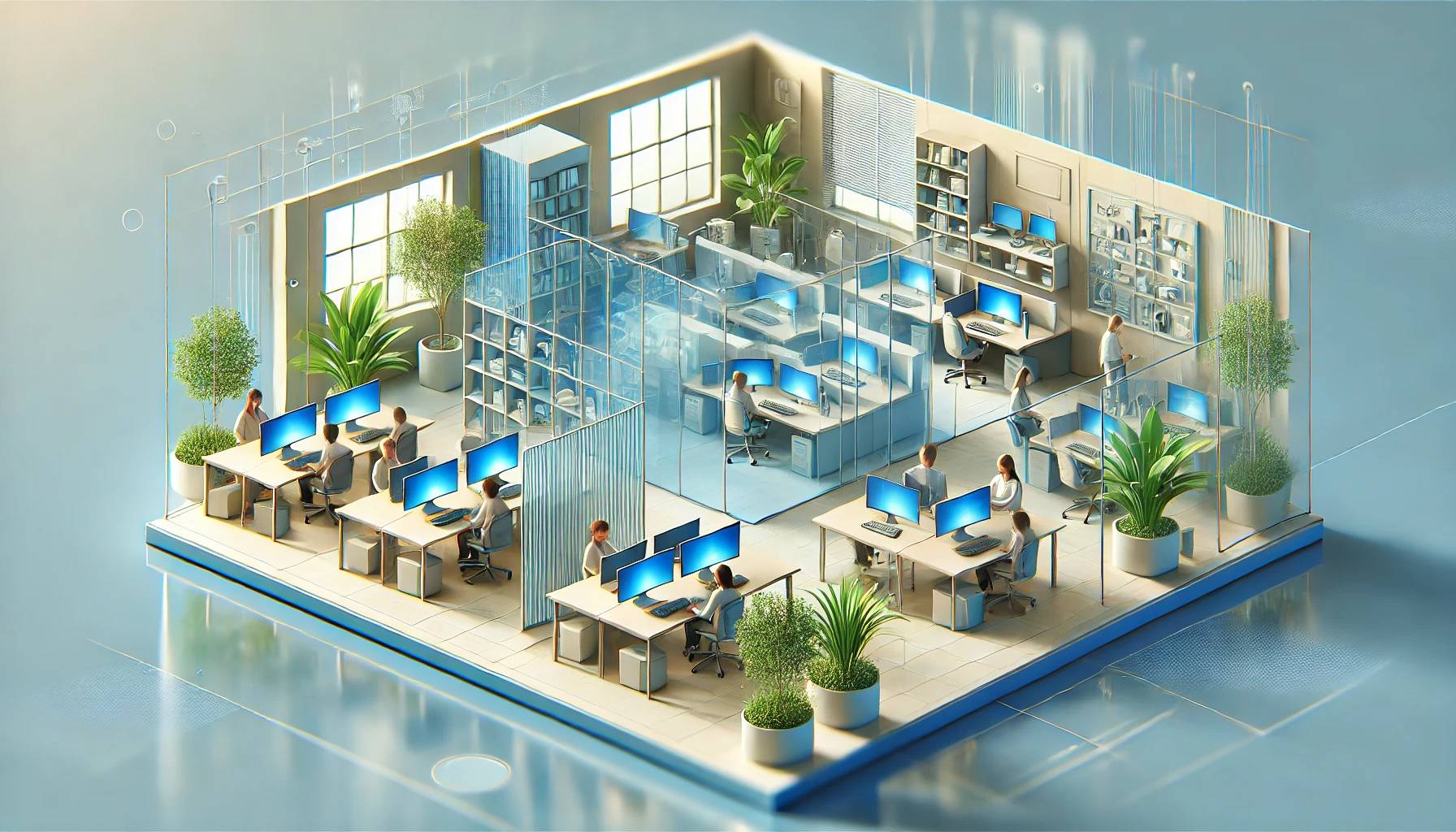↑
What is CRM?
Imagine a world where your business can read customers' minds, understand their needs, and always stay one step ahead of the competition… Sounds incredible, right? All of this is possible with the implementation of a CRM system—a tool that transforms data chaos into a structured database, helping you build strong relationships with your customers.
In this article, we will explain what a CRM system is, what tasks it can solve, and why it will be beneficial for your business.
The History of CRM Development
The first Customer Relationship Management (CRM) systems appeared in the early 1990s. They were simple and helped store contacts and track communications.
By the 2000s, CRM systems moved online, becoming accessible to small and medium-sized businesses. Thanks to modern technologies, today's CRM programs offer incredible capabilities: process automation, analytics, integration with other business tools, and, most importantly, the ability to provide a personalized approach to each customer.
What is a CRM System?
CRM (Customer Relationship Management) is a system for managing customer relationships. It enables companies to more effectively manage their customers, track their behavior, analyze data, and increase customer satisfaction.
The main goal of implementing a CRM system is to transform chaotic business processes into an efficient, automated system that focuses on the customer, optimizes team performance, and ensures maximum results from every interaction.

Who Needs CRM Systems?
CRM systems are especially useful for businesses that aim to understand their customers' needs, segment their customer base, improve service quality, and increase sales efficiency. For example, a marketing agency that works with many clients and projects can benefit from a CRM system by:
- Storing all contacts in one place;
- Tracking interaction history so you can offer personalized solutions based on data analysis and increase customer loyalty;
- Analyzing campaign effectiveness through transparent communications and team coordination;
- Automating routine tasks, freeing up time for creative and strategic planning.
This allows companies to quickly respond to customer needs, ultimately leading to business growth.
What Tasks Can CRM Solve?
A CRM system is an indispensable tool for modern businesses as it can solve a wide variety of tasks. What is CRM if not a platform that helps optimize and increase your company's efficiency? It can handle:
· Organizing contacts;
· Improving communication;
· Automating routine processes;
· Analyzing efficiency;
· Providing personalized solutions.
Key Features of CRM Systems
At the same time, CRM systems offer businesses universal features, including:
· Sales and Lead Management
Automatically distributes leads among managers, tracks every interaction stage, and sends reminders for the next actions.
· Data Management and Segmentation
Collects all customer data, making it easy to segment the audience by various criteria: behavior, needs, demographics.
· Marketing Automation
Automates routine marketing tasks such as sending emails, managing social media, and analyzing campaigns.
· Customer Support
Integrates all customer support channels (phone, email, chat) into a single system.
· Integration with Other Applications
Easily integrates with other business applications like marketing platforms, social media, e-commerce systems, payment systems, etc. This ensures seamless data exchange and increases the company's overall efficiency.
Types of CRM Systems
The choice of the appropriate CRM system depends on your business's specifics and needs. That's why there are different types of systems you can integrate into your business.
By Task Type:
1) Operational CRM helps automate and improve daily business processes: sales, marketing, customer service.
2) Analytical CRM is a powerful tool for making informed business decisions and developing effective strategies, as it helps understand customer behavior, identify trends, and forecast future sales.
3) Collaborative CRM focuses on improving internal communication and coordination between company departments.
4) Collaborative CRM centers on customer interaction through various channels: social media, email, chats, etc.

By Technology Used:
1) Cloud-based CRM (Software as a Service) is hosted on remote servers and accessed via the internet, eliminating the need for installation and configuration on local computers and providing easy access to data from any device.
2) On-premise CRM (Standalone) is installed on local servers or computers, offering more control over data and settings but requiring more resources for installation and maintenance.
How to Choose a CRM System?
Choosing a CRM system, like choosing an ERP, can be a critical step for your business. Let's consider the key aspects that will help you make the right choice.
Understanding your business: Before choosing a CRM, determine which specific functions you need – sales, marketing, customer service, or analytics.
Integration with existing systems: It's essential that the new system easily integrates with your current business tools.
Budget and costs: Evaluate your budget, considering not only the purchase cost but also support and updates.
User experience: Choose a CRM that is user-friendly and convenient for your colleagues to use.
Support and reliability: Choose a provider that offers reliable support and ensures the system's stable operation.
Industry-Specific CRM Solutions
CRM systems come in various forms: some specialize in specific niches like healthcare, real estate, or hospitality, while others are comprehensive and suitable for different types of businesses. Specialized CRM solutions offer features designed to meet the unique needs of certain industries, ensuring maximum efficiency and effectiveness. LBS Cloud offers a range of industry-specific CRM solutions that can help optimize your business.
Conclusion
Integrating a CRM into your business enhances operational efficiency and drives company growth. LBS Cloud offers a reliable and functional CRM that, thanks to a wide range of ready-made integrations, adapts to your industry's needs, providing you with a competitive edge and helping you reach new heights.